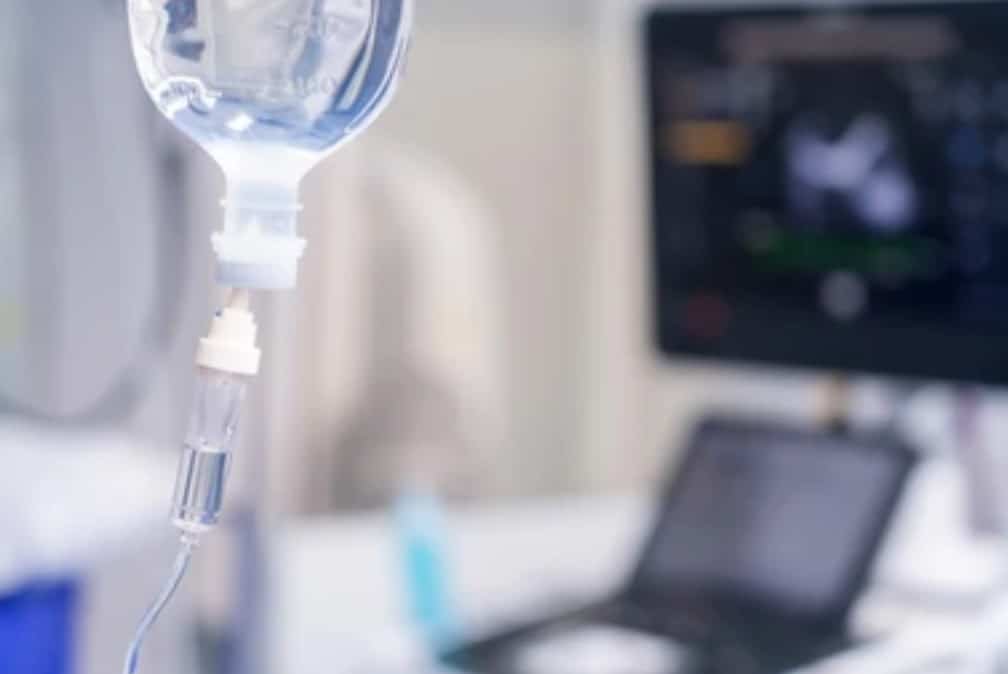Health
The Versatile Role of Normal Saline in Medical Care

Introduction
Normal saline, which is 0.9% sodium chloride solution, is an important part of medical care because it is safe and can be used for many things. This piece talks about the different uses of normal saline and how important it is in different medical procedures and treatments.
Composition and Basic Properties
Normal saline is a clean fluid made up of 0.9% sodium chloride dissolved in water. This simple mixture matches the amount of salts in the body, which makes it perfect for use in medicine. Because it is isotonic, it has the same amount of salts and minerals in it as in the cells and blood of the body, which is important for keeping the body in balance. Its nonpyrogenic feature, which means it doesn’t make you feverish when given, is another reason why it’s good for medical uses.
Features and Benefits
Normal saline, with its balanced electrolyte composition, closely mirrors the body’s natural fluid environment, making it exceptionally safe and versatile for medical use.
- Isotonicity: Matches the body’s natural fluid balance, minimizing cellular stress or damage.
- Safety: Low risk of causing allergic reactions or side effects, suitable for most patients.
- Versatility: Can be used for hydration, medication delivery, wound care, and more.
- Stability: Chemically stable, allowing for safe storage and use in various medical settings.
- Cost-Effectiveness: Affordable and widely available, making it a practical choice in healthcare.
Side Effects & Drug Interactions
Normal saline is generally considered safe, but like any medical intervention, it can have side effects, especially if used improperly. Most issues arise from incorrect administration or dosage.
- Electrolyte Imbalance: Excessive use can disrupt the body’s electrolyte balance.
- Volume Overload: May lead to fluid overload, particularly in patients with heart or kidney conditions.
- Vein Irritation: Prolonged intravenous use can irritate veins.
- Drug Interactions: Can interact with certain medications, altering their effectiveness.
- Hypersensitivity Reactions: Rarely, individuals may exhibit allergic reactions to components in the solution.
Warnings & Precautions for Normal Saline Use
Normal saline, while generally safe, must be used with caution in certain medical conditions to avoid complications.
- Heart Conditions: In patients with heart failure or hypertension, excessive use can exacerbate these conditions.
- Renal Impairment: Overuse in patients with kidney issues can lead to fluid overload and worsened renal function.
- Electrolyte Imbalance: Continuous monitoring is necessary to prevent imbalances, especially in cases of prolonged administration.
- Rate of Administration: Must be carefully controlled to avoid rapid shifts in fluid balance, which can lead to complications like pulmonary edema.
- Sterility: Ensure the solution is sterile to prevent infection risks. Once opened, it should be used promptly to maintain sterility.
Clinical Applications
Hydration and Volume Expansion
In medical situations, normal saline is often used to treat conditions like being dehydrated and losing too much volume. It successfully fights the effects of fluid loss by increasing the body’s overall fluid volume. This helps keep blood flowing properly and organs working properly. It is very important in emergency care, especially when someone is severely dehydrated or shocked.
Medication Administration
Normal fluid is also very important because it helps carry different medicines. It is often used to dilute drugs that need to be injected into the bloodstream. This makes sure that the drugs get into the bloodstream safely and correctly. This is especially important for treatments that need exact doses and steady rates of absorption.
Wound Care and Cleaning
Normal saltwater is an important part of wound care. The fact that it is isotonic makes it a gentle but effective way to clean wounds without hurting or irritating body cells. This trait is very important for making sure wounds heal properly, lowering the risk of infection, and getting them ready for more treatment.
Diagnostic Procedures
In addition, normal saline is used in many diagnostic treatments. In bronchoscopy, for example, it clears out the airways so that the doctor can see better and make a more correct diagnosis. In the same way, regular saline can be used to improve the clarity and accuracy of some radiological exams.
Other Medical Uses
Aside from these uses, normal saline is also used in many other medical situations. It is used in dialysis for people whose kidneys have failed and as a flush for intravenous tubes to keep them open and avoid blockages.
Conclusion
There is more to normal saline than meets the eye. It is an important tool in the medical field. Maintaining physiological balance, delivering drugs, helping with wound care, and supporting diagnostic processes are just some of the many things it can do. So, normal saline is not only an important part of many medical fields, it is also a necessity for safe and effective patient care. This look at its roles and uses shows how important this seemingly simple but very important medical answer is.
-

 Celebrity4 weeks ago
Celebrity4 weeks agoIs YNW Melly Out Of Jail? What Is The YNW Melly Release Date, Career, Early Life, And More
-

 Sports4 weeks ago
Sports4 weeks agoMore Than Just a Game: How College Sports Can Shape Your Future
-

 Tech3 weeks ago
Tech3 weeks agoAI Software: Transforming the Future of Technology
-

 Tech3 weeks ago
Tech3 weeks agoAll About Com. Dti. Folder Launcher: Features, Benefits, Tips, And More













